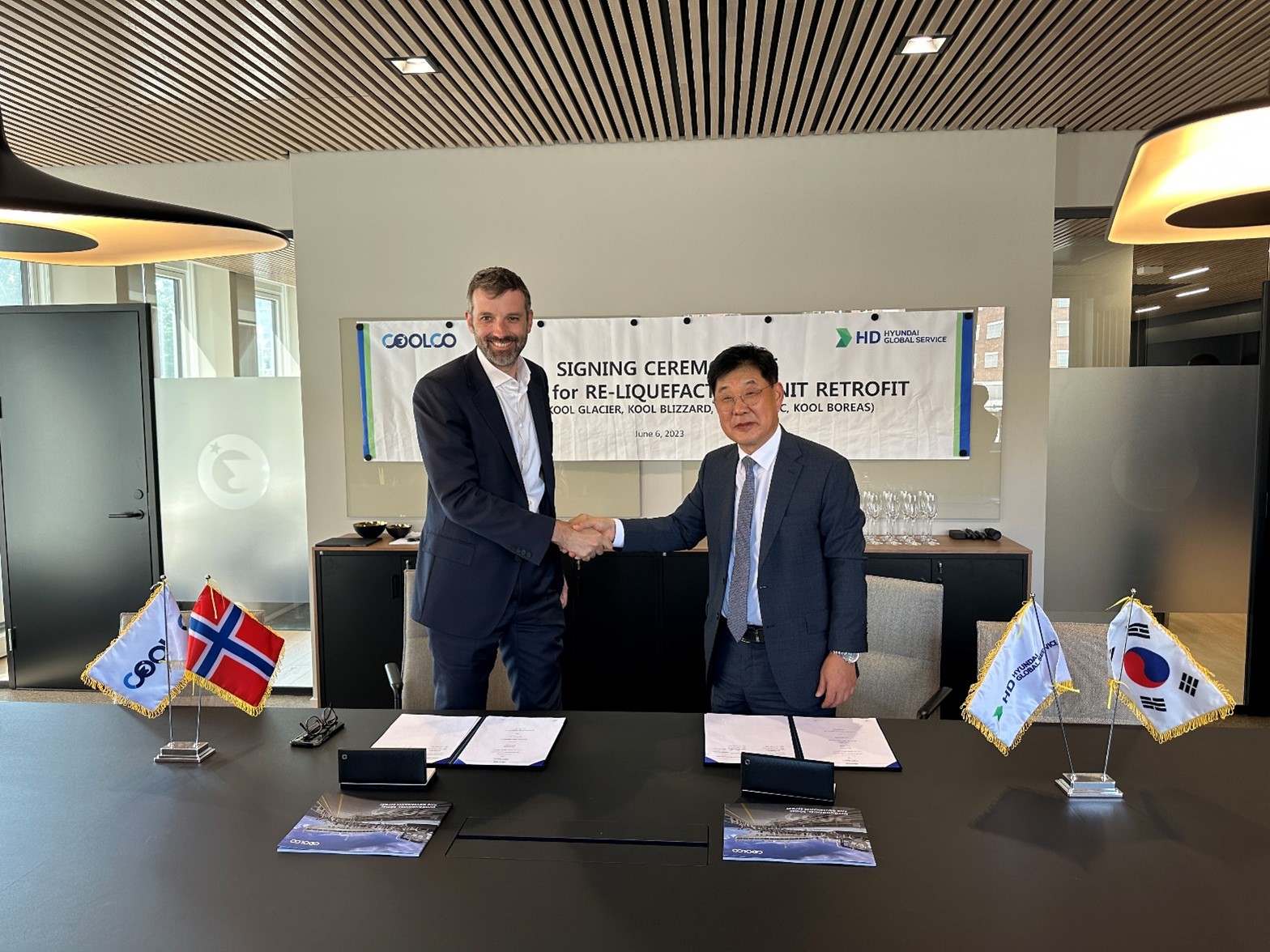LNG carrier operator CoolCo will invest about $50 million to install reliquefaction units on five of its liquefied natural gas tankers.
The firm controlled by Idan Ofer’s Eastern Pacific Shipping said in a statement it has signed contracts on June 6 with HD Hyundai Global Service, a ship service subsidiary of HD Hyundai Group, to retrofit five LNG carriers with sub-coolers for LNG boil-off reliquefaction.
CoolCo said the contract value is about $10 million per vessel, but it did not provide the name of the vessels in question.
It recently said in its first-quarter report that it will upgrade its tri-fuel electric propulsion (TFDE) carriers to slash emissions and improve fuel consumption.
CoolCo has seven TFDE LNG carriers it acquired from Golar LNG and four it purchased from EPS. Two of these are TFDE vessels and two are XDF ships.
ESG goals
A reliquefaction unit reliquefies BOG generated during the operation of LNG cargo tanks, either returning the gas to the cargo tank or preventing natural evaporation using sub-cooled LNG.
The LNG shipping firm said in the statement that the utilization of a reliquefaction unit is known to be effective mainly in LNG carriers equipped with TFDE or two-stroke dual-fuel (DF) engines.
HD Hyundai Global Service is currently receiving inquiries from its customers for additional reliquefaction unit retrofit work similar to CoolCo’s, it said.
The firm plans to incorporate reliquefaction units supplied by Air Liquide, a French company specializing in this technology, and will be responsible for the overall design, product supply, installation, and commissioning, CoolCo said.
CoolCo said the retrofit of the sub-cooling units is an “important step” towards achieving its ESG goals.
Richard Tyrrell, CEO of CoolCo, said this initiative is a “central component in our LNGe conversion process.”
“These reliquefaction units will provide our charterers with valuable flexibility when it comes to managing the seasonal fluctuations in LNG demand, in particular by supporting efficient travel at lower speeds, idling and floating storage applications,” he said.
“In addition, these retrofits will enhance the long-term value and competitiveness and reduce the environmental footprint of what will become our LNGe vessels,” Tyrrell said.

